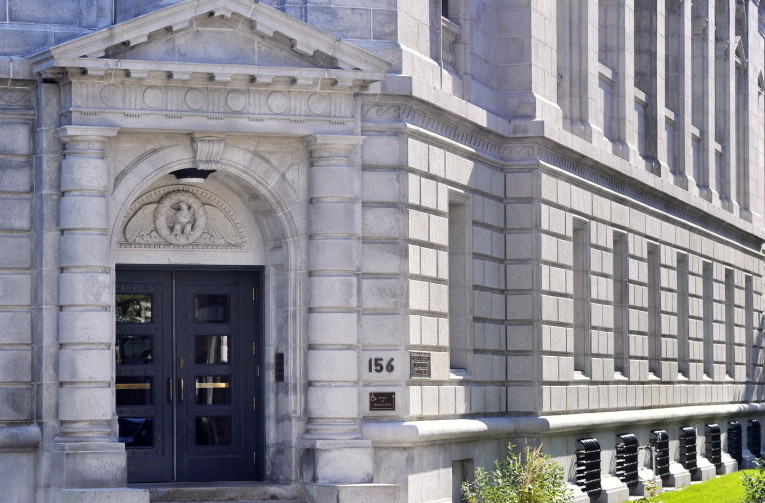A decision last week by a federal judge allows supporters of independent gubernatorial candidate Eliot Cutler to double their campaign contributions, leveling one aspect of the playing field in Cutler’s race against U.S. Rep. Mike Michaud, a Democrat, and Republican Gov. Paul LePage.
The ruling, however, is a narrow one, as it only addresses the inequities facing contributors in this particular kind of race when neither party candidate faces a primary challenge.
And in making his decision, Judge D. Brock Hornby demonstrated that those inequities will exist, in some form and magnitude, in any race featuring a nonparty candidate, until more comprehensive changes are made.
In the case before Hornby, four Cutler supporters challenged the Maine law that limits individual contributions to an independent candidate to $1,500 for the entire election cycle while allowing party candidates to receive $1,500 per person for both the primary and general election.
NO PRIMARY THIS YEAR
The law became an issue this year because neither Michaud nor LePage faced a primary challenge, meaning all the money they raised, dating back to the time they announced their candidacies, could be used courting votes for the general election.
Hornby correctly decided the law infringed on the rights of Cutler’s contributors, who because of the limit on contributions to independent candidates were not able to support their favored candidate in the same way as supporters of Michaud or LePage.
The judge also made it clear that the ruling only pertains to this race and, perhaps, others with the same characteristics. Hornby doesn’t say how his ruling would have changed if Michaud and LePage had faced an opponent in the primary.
But Hornby does hint at the difficulty of applying his logic as the circumstances of a race change.
In this case, Cutler – and by extension, his contributors – are treated unfairly because his opponents were allowed to accept money to fund a primary race for a primary that didn’t exist.
If there had been primary challenges for the party candidates, then all three candidates would have been allowed the $1,500 per person per election imagined when the law was put in place.
But upon closer review, that logic doesn’t hold.
What if one of the party candidates faces only a weak challenger in the primary? Is it fair for that candidate to have something close to $3,000 per contributor for the general election, after having to spend only a small portion in the primary?
OTHER QUESTIONS
And shouldn’t the nonparty candidate, too, be allowed to raise extra money early in the race to compete against the party candidates receiving significant, and often free, publicity during the primary season?
Granting an independent the ability to raise more money also has its drawbacks. How is that fair to a party candidate who has to fight through a seven-way primary, as LePage did in 2010?
Hornby’s decision did not weigh in on these matters, as the case was concerned only with the current race and only from the contributor’s point of view.
But it is clear that no campaign finance law would be able to account for all the factors in order to make the race fair and level, for either the contributors or the candidates.
The recent ruling made things right in this year’s race for governor. But it will take reform, such as the use of ranked-choice voting, which puts all the candidates on the same ballot from the start, to keep future races fair.
Send questions/comments to the editors.



Comments are no longer available on this story